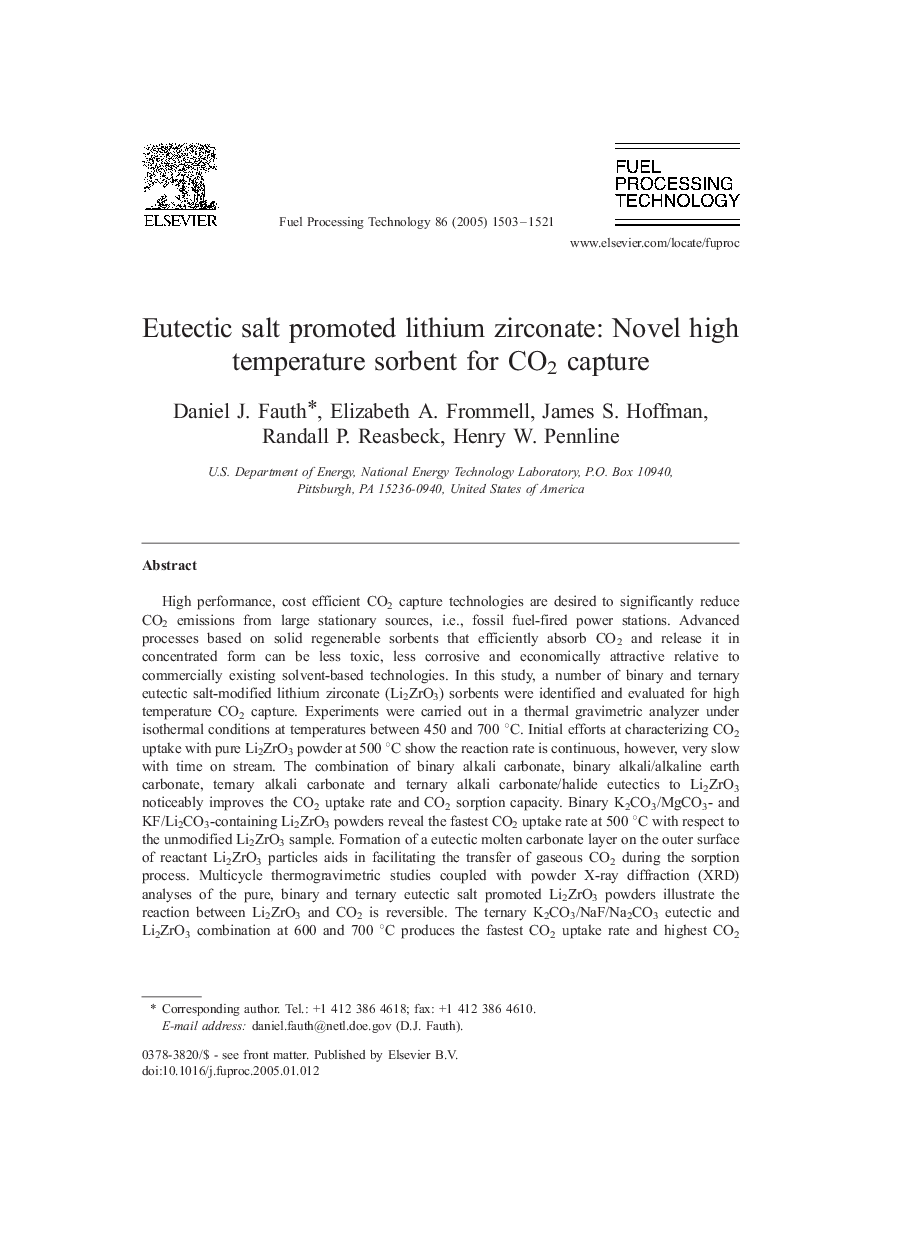| Article ID | Journal | Published Year | Pages | File Type |
|---|---|---|---|---|
| 9632205 | Fuel Processing Technology | 2005 | 19 Pages |
Abstract
High performance, cost efficient CO2 capture technologies are desired to significantly reduce CO2 emissions from large stationary sources, i.e., fossil fuel-fired power stations. Advanced processes based on solid regenerable sorbents that efficiently absorb CO2 and release it in concentrated form can be less toxic, less corrosive and economically attractive relative to commercially existing solvent-based technologies. In this study, a number of binary and ternary eutectic salt-modified lithium zirconate (Li2ZrO3) sorbents were identified and evaluated for high temperature CO2 capture. Experiments were carried out in a thermal gravimetric analyzer under isothermal conditions at temperatures between 450 and 700 °C. Initial efforts at characterizing CO2 uptake with pure Li2ZrO3 powder at 500 °C show the reaction rate is continuous, however, very slow with time on stream. The combination of binary alkali carbonate, binary alkali/alkaline earth carbonate, ternary alkali carbonate and ternary alkali carbonate/halide eutectics to Li2ZrO3 noticeably improves the CO2 uptake rate and CO2 sorption capacity. Binary K2CO3/MgCO3- and KF/Li2CO3-containing Li2ZrO3 powders reveal the fastest CO2 uptake rate at 500 °C with respect to the unmodified Li2ZrO3 sample. Formation of a eutectic molten carbonate layer on the outer surface of reactant Li2ZrO3 particles aids in facilitating the transfer of gaseous CO2 during the sorption process. Multicycle thermogravimetric studies coupled with powder X-ray diffraction (XRD) analyses of the pure, binary and ternary eutectic salt promoted Li2ZrO3 powders illustrate the reaction between Li2ZrO3 and CO2 is reversible. The ternary K2CO3/NaF/Na2CO3 eutectic and Li2ZrO3 combination at 600 and 700 °C produces the fastest CO2 uptake rate and highest CO2 capacity. Reaction temperature also plays a major effect on the direct carbonation rate of the modified Li2ZrO3 samples.
Keywords
Related Topics
Physical Sciences and Engineering
Chemical Engineering
Chemical Engineering (General)
Authors
Daniel J. Fauth, Elizabeth A. Frommell, James S. Hoffman, Randall P. Reasbeck, Henry W. Pennline,
